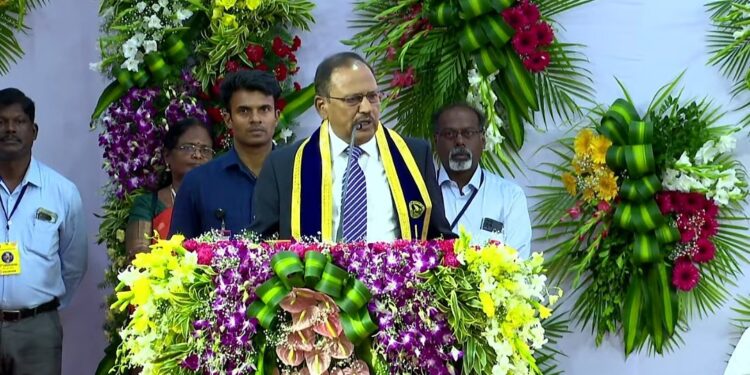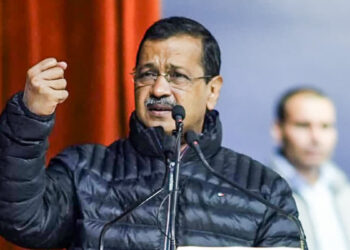Chennai, India – On July 11, 2025, India’s National Security Advisor (NSA) Ajit Doval highlighted the success of Operation Sindoor, a precision military strike against terrorist targets in Pakistan, while emphasizing the critical role of indigenous technology. Speaking at the 62nd Convocation of the Indian Institute of Technology (IIT) Madras, Doval praised India’s self-reliance in defense and its ability to execute complex operations with homegrown systems.
Operation Sindoor, launched on May 7, 2025, targeted nine terrorist locations deep within Pakistan in response to a deadly terror attack in Pahalgam, India, on April 22, which killed 26 people. The operation, completed in just 23 minutes, showcased India’s advanced military capabilities, including BrahMos missiles, radars, and integrated command systems—all developed domestically. Doval stressed that the strikes were precise, hitting only the intended targets without any collateral damage. “We missed none, and no unintended site was struck,” he said, addressing the audience of students, faculty, and dignitaries.
Doval challenged foreign media claims about Pakistan’s retaliation, stating, “Show me one photograph of any damage to India—not even a glass pane was broken.” He criticized outlets like The New York Times for lacking evidence to support their reports, reinforcing India’s uncompromised security. High-resolution satellite imagery later confirmed damage to 13 Pakistani airbases, including those in Sargodha and Rahim Yar Khan, underscoring the operation’s success.
Highlighting the importance of technological self-reliance, Doval urged young IIT graduates to innovate under India’s Aatmanirbhar Bharat (Self-Reliant India) initiative. “From BrahMos to surveillance tech, Operation Sindoor showed what indigenous systems can achieve,” he said. He also revealed India’s plans to fully indigenize communication systems to enhance national security and protect data from external threats.
The NSA’s remarks come amid heightened tensions with Pakistan, which accused Doval of orchestrating terrorism—a claim India dismissed as baseless. Operation Sindoor also marked a shift in India’s counter-terrorism strategy, combining precise military action with non-kinetic measures, such as suspending parts of the Indus Waters Treaty, to pressure Pakistan.
Doval’s address inspired the graduating class, with the IIT Madras director, V. Kamakoti, echoing the call for innovation by announcing plans for a new semiconductor fabrication facility. The convocation also celebrated the institute’s achievements, including incubating 103 deep-tech startups in 2024.
As India continues to strengthen its defense capabilities, Operation Sindoor stands as a testament to its growing technological prowess and strategic resolve in combating terrorism.





































